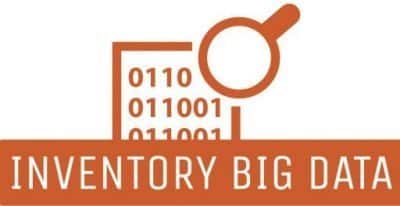Description
Jade, the procurement manager, is responsible for finding equipment, goods, and services and managing suppliers. She is capable of conducting strategic purchasing activities in a range of spending categories, seeking better deals and finding more profitable suppliers. Her role also includes:
Developing, leading, and executing procurement strategies Tracking and reporting key functional metrics to reduce expenses and improve efficiency Determining the quantity and timing of deliveries and tracking and forecasting future demand levels Developing negotiation strategies and securing agreements with optimal conditions Collaborating with stakeholders to ensure clear documentation of requirements Performing cost and scenario analyses as well as comparative analyses
As the procurement manager, you are responsible for selecting suppliers that best meet the company’s needs in terms of quality, cost, and delivery time. You work closely with production and planning teams to anticipate raw material and finished product needs and ensure their availability in time for production. You are also responsible for negotiating purchase contracts with suppliers and ensuring that payment and delivery terms are met. Finally, you are responsible for tracking orders and managing any disputes with suppliers.
job description
Job description:
Position: Purchasing Manager
Role and Responsibilities:
The Purchasing Manager is responsible for sourcing equipment, goods, and services and managing suppliers. They will be able to conduct strategic purchasing activities across various spending categories, seek better deals, and find more profitable suppliers. Key responsibilities include:
- Developing, leading, and executing procurement strategies
- Tracking and reporting key functional metrics to reduce expenses and improve efficiency
- Determining the quantity and timing of deliveries and tracking and forecasting future demand levels
- Developing negotiation strategies and securing agreements with optimal conditions
- Collaborating with stakeholders to ensure clear documentation of requirements
- Performing cost and scenario analyses as well as comparative analyses
The Purchasing Manager is responsible for selecting suppliers that best meet the company’s needs in terms of quality, cost, and delivery time. They work closely with production and planning teams to anticipate raw material and finished product needs and ensure their availability in time for production. They are also responsible for negotiating purchase contracts with suppliers and ensuring that payment and delivery terms are met. Finally, they are responsible for tracking orders and managing any disputes with suppliers.
Qualifications:
- Bachelor’s degree in business administration, supply chain management, or related field
- 5+ years of experience in procurement or supply chain management
- Strong analytical and negotiation skills
- Excellent communication and interpersonal skills
- Ability to work under pressure and meet tight deadlines
- Proficient in Microsoft Office and procurement software
The Purchasing Manager must possess excellent communication and interpersonal skills and be able to work collaboratively with all levels of the organization. They must have strong analytical and negotiation skills and be able to work under pressure and meet tight deadlines. They must be proficient in Microsoft Office and procurement software.
This is a full-time position with competitive salary and benefits. If you are interested in applying for this position, please submit your resume and cover letter.
Interview Questions
Can you describe your professional background in stock management in an industrial company?
- I started my career as a stock assistant, then worked my way up to become a stock manager. I gained solid experience in ensuring product availability to meet the company’s needs.
How do you optimize stock levels to ensure product availability?
- I rely on stock tracking tools to anticipate storage needs, and I implement replenishment plans to avoid stockouts. I also work closely with other departments to ensure effective coordination.
How do you manage stock losses and overstocks?
- I aim to minimize stock losses by implementing rigorous tracking procedures and identifying the causes of losses. I also use stock management strategies, such as selling or reducing excess stock.
How do you ensure compliance with storage and safety standards?
- I ensure that storage and safety standards are followed by implementing control procedures and training employees on best practices. I also regularly check facilities to ensure compliance with applicable standards.
How do you establish processes to improve stock management efficiency?
- I strive to improve stock management efficiency by implementing standardized processes and using computer tools to automate tasks. I also work closely with other departments to identify opportunities for improvement.
How do you work with other departments to ensure effective coordination of storage activities?
- I regularly communicate with other departments to exchange information on storage needs and to ensure effective coordination of activities. I also strive to maintain good collaboration by building trusted relationships with other departments.
How do you use computer tools to manage inventories and track stock movements?
- I rely on computer tools to manage inventories and track stock movements.
FAQ
Q: How can I identify the most high-performing suppliers for my business?
- Analyze supplier performance data, such as product quality, delivery times, and service levels. Use this data to select the best suppliers and work with them to improve their performance.
Q: How can I negotiate favorable contracts with suppliers?
- Use data on your company’s expenses to identify areas where cost savings can be achieved. Also, use data on supplier performance to negotiate more favorable rates with suppliers who offer the best products and services.
Q: How can I plan purchases in advance?
- Use data on product demand to plan purchases in advance and ensure that products are available when customers need them. This can help avoid delivery delays and availability issues.
Q: How can I manage supply chain risks?
- Use data on supply chain risks, such as risks related to suppliers or raw materials, to make informed decisions to manage risks and minimize negative impacts on the business.
Q: How can I measure the performance of my procurement department?
- Use Key Performance Indicators (KPIs) to measure the performance of your department, such as the cost of purchases, delivery times, and internal customer satisfaction. Use this data to identify areas for improvement to optimize the efficiency of procurement and supply chain management.
Q: How can I improve the efficiency of my purchasing department?
- Analyze data on procurement and supply chain processes to identify areas where improvements can be made. Use this data to establish continuous improvement plans and to track progress in implementing these plans.





